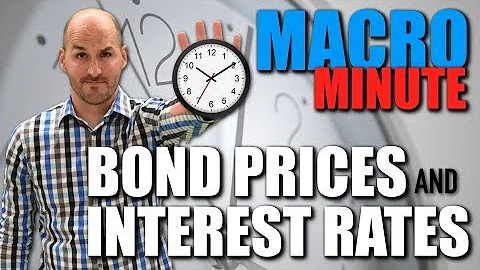Why does selling bonds reduce money supply?
If the Fed buys bonds in the open market, it increases the money supply in the economy by swapping out bonds in exchange for cash to the general public. Conversely, if the Fed sells bonds, it decreases the money supply by removing cash from the economy in exchange for bonds.
If the central bank wants interest rates to be lower, it buys bonds. Buying bonds injects money into the money market, increasing the money supply. When the central bank wants interest rates to be higher, it sells off bonds, pulling money out of the money market and decreasing the money supply.
Limiting the money supply can slow down inflation, as the Fed intends. But there is also the risk that it will slow economic growth too much, leading to more unemployment.
Expansionary monetary policy includes purchasing government bonds, decreasing the reserve requirement, and decreasing the federal funds interest rate. Contractionary monetary policy includes selling government bonds, increasing the reserve requirement, and increasing the federal funds interest rate.
When the Fed buys and sells bonds through open-market operations, the money supply changes, but there is no effect on the money supply when individuals buy and sell bonds.
The government can sell bonds to the public as a means to control inflation. By selling bonds, this will enable in reducing the amount of money in circulation within the economy, thus reducing the level of inflation.
Selling bonds would also shrink the money supply, reducing the rate of inflation. This increases the real interest rate of all US-denominated debt since the dollars loans are paid back with are more valuable than otherwise.
If the Fed buys bonds in the open market, it increases the money supply in the economy by swapping out bonds in exchange for cash to the general public. Conversely, if the Fed sells bonds, it decreases the money supply by removing cash from the economy in exchange for bonds.
Answer and Explanation:
When the Fed sells government securities in the secondary market. It would lead to a decrease in the money supply.
The decrease in the money supply causes spending to fall. We know that decreased spending is the key to reducing inflation. So the appropriate time to increase the money supply is when the economy is experiencing inflation.
What does selling bonds do to the economy?
By buying or selling bonds, bills, and other financial instruments in the open market, a central bank can expand or contract the amount of reserves in the banking system and can ultimately influence the country's money supply. When the central bank sells such instruments it absorbs money from the system.
A decrease in the money supply and an increase in the interest rate. When the Federal Reserve sells bonds as a part of a contractionary monetary policy, there is a decrease in the money supply and an increase in the interest rate.

The most commonly used tool of monetary policy in the U.S. is open market operations. Open market operations take place when the central bank sells or buys U.S. Treasury bonds in order to influence the quantity of bank reserves and the level of interest rates.
Credit risk is a disadvantage of corporate bonds. If the issuer goes out of business, the investor may never get the promised interest payments or even get their principal back.
By contrast, if the Fed sells or lends treasury securities to banks, the payment it receives in exchange will reduce the money supply.
Asset purchases involve the outright purchase of assets by the central bank in the secondary market, including government bonds. By purchasing assets the central bank adds to demand for them, so their price increases and their yield falls.
The government backs the money supply in the United States. The purchasing power of the money can be determined by the total amount of goods and services that can be bought with it. When the price levels are rising, purchasing power falls and vice-versa.
Inflation is a bond's worst enemy. Inflation erodes the purchasing power of a bond's future cash flows. Typically, bonds are fixed-rate investments.
Open market purchases raise bond prices, and open market sales lower bond prices. So, open market operations (OMOs) affect bond prices. Interest rates are negatively related to bond prices. 1 It follows that open market purchases decrease interest rates, and open market sales increase interest rates.
Unless you are set on holding your bonds until maturity despite the upcoming availability of more lucrative options, a looming interest rate hike should be a clear sell signal.
Does selling bonds increase or decrease interest rates?
When Fed policymakers decide that they want to raise interest rates, the Fed sells government bonds. This sale reduces the price of bonds and raises the interest rate on these bonds. (We can also think of this as the Fed reducing the money supply. This makes money less plentiful and drives up the price of borrowing.)
Holding bonds vs. trading bonds
However, you can also buy and sell bonds on the secondary market. After bonds are initially issued, their worth will fluctuate like a stock's would. If you're holding the bond to maturity, the fluctuations won't matter—your interest payments and face value won't change.
The Fed sells bonds, which decreases the supply of federal funds, which raises the interest rate, which leads to a decrease in intended investment spending, aggregate demand and output.
The Federal Reserve can increase the money supply by lowering the discount rate. a. Lowering the discount rate gives depository institutions a greater incentive to borrow, thereby increasing their reserves and lending activity.
Answer and Explanation: The correct answer is (c). The Fed reduces the money supply by increasing the interest rate paid on reserves.